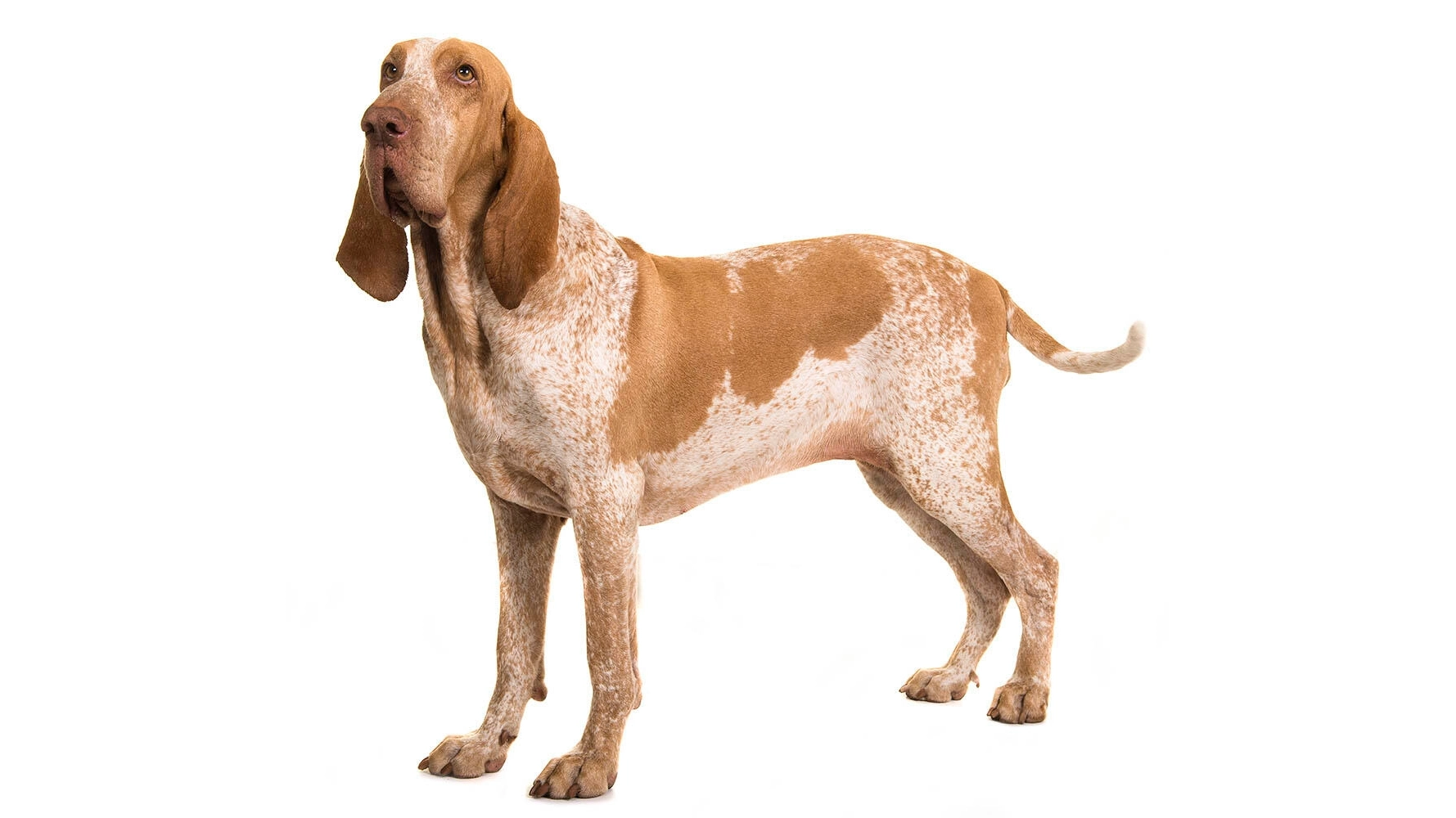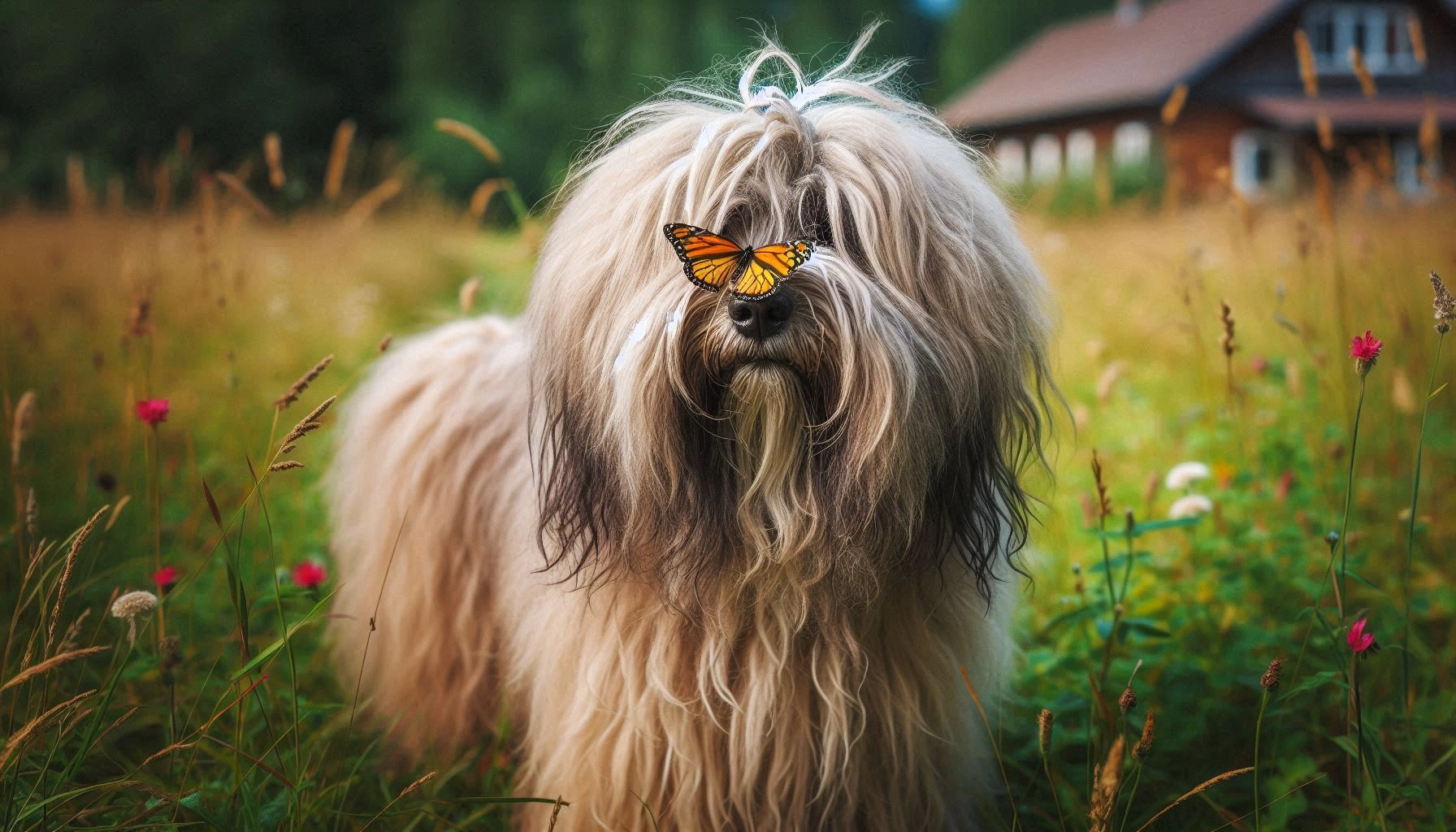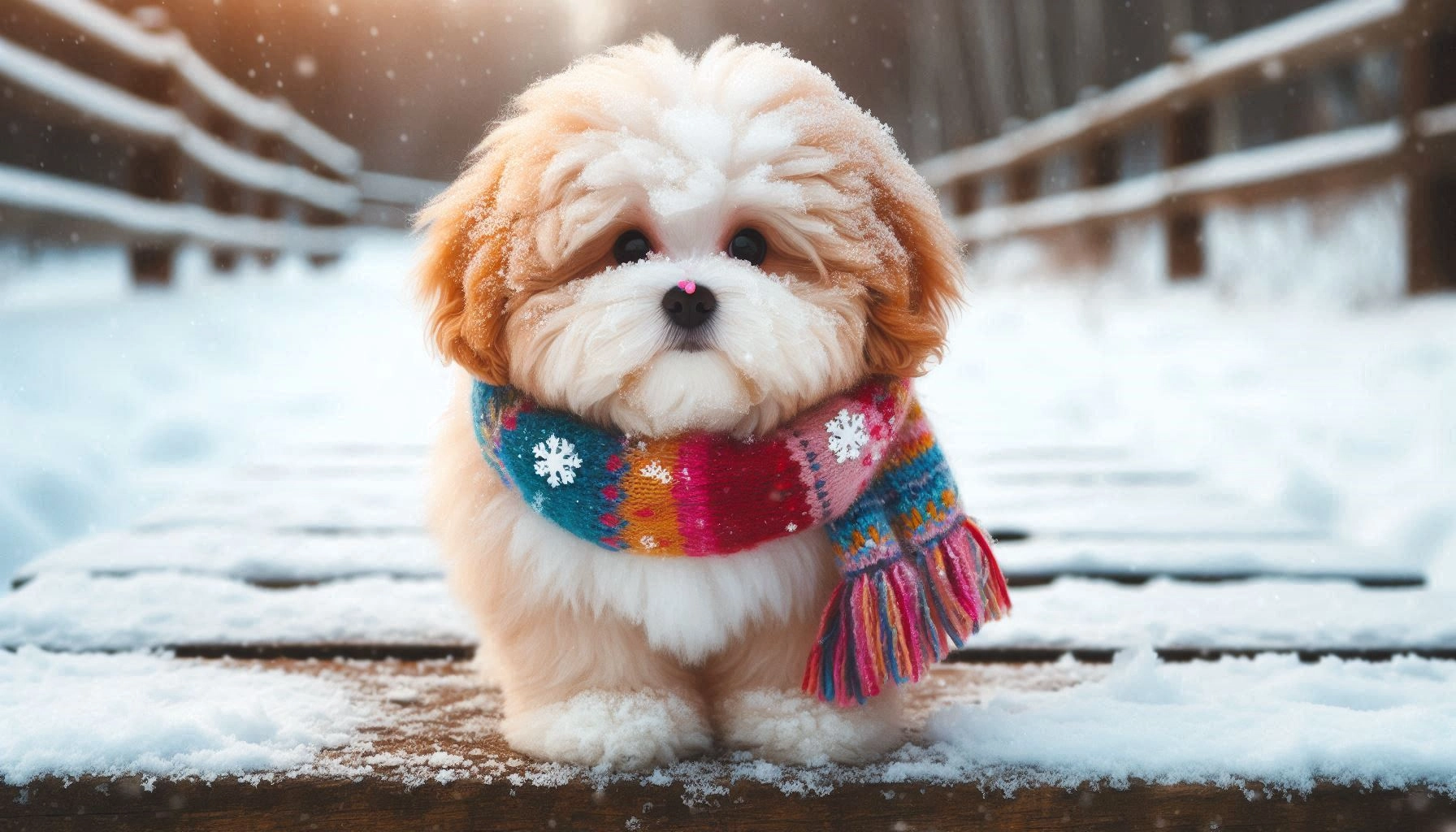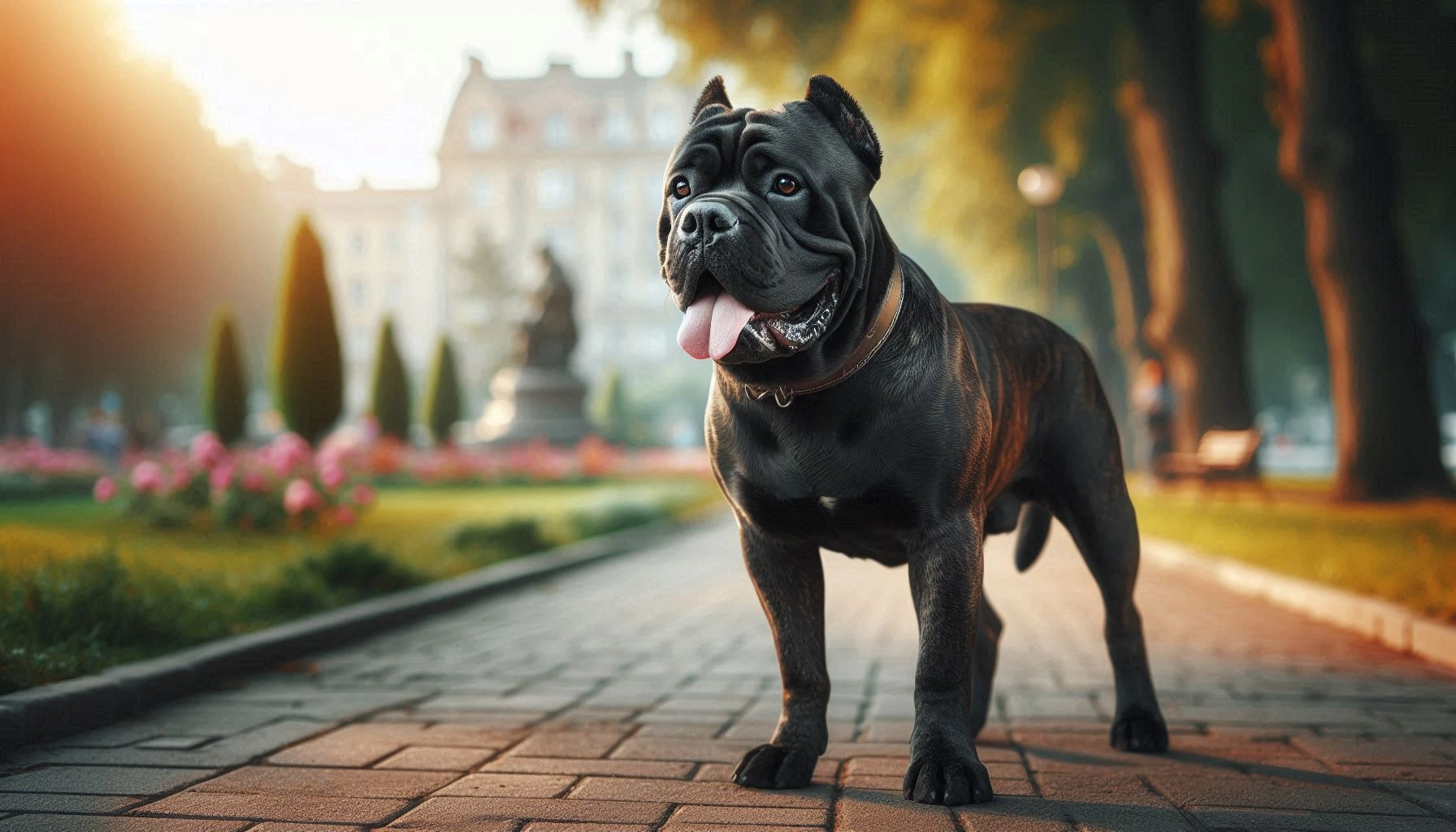Table of Contents
Maremma Sheepdog Breed
The Maremma Sheepdog, also known as the Maremmano-Abruzzese Sheepdog, is a majestic and loyal breed that has been a steadfast protector of livestock for centuries. Renowned for its intelligence, bravery, and unwavering loyalty, the Maremma Sheepdog has earned a special place in the hearts of dog lovers, particularly those with rural lifestyles or large properties. This breed is popular for its striking appearance and the sense of security it provides, making it an excellent choice for those seeking a devoted guardian and companion.
History and Origin
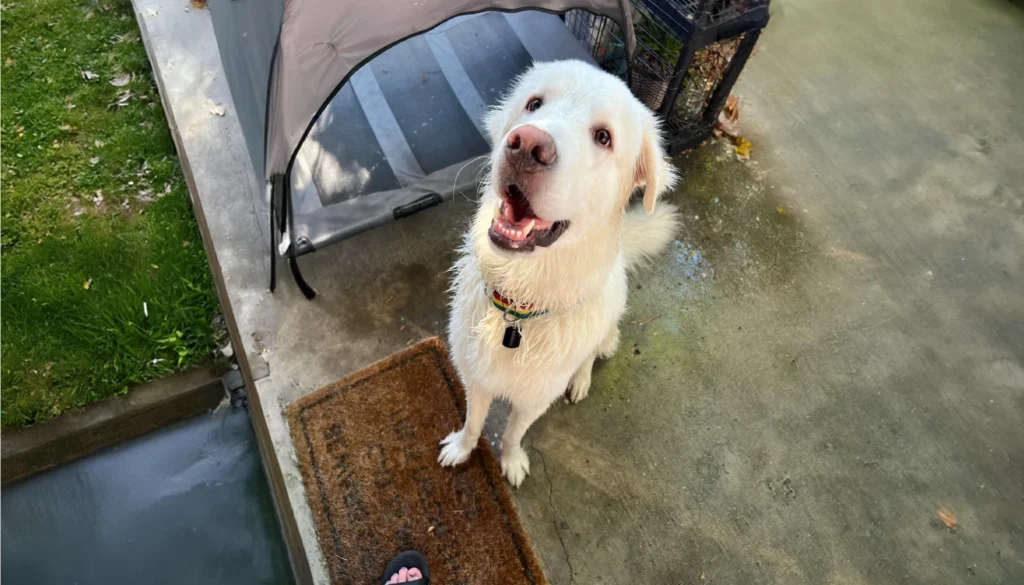
The history of the Maremma Sheepdog is deeply rooted in the pastoral traditions of Italy. Originating from the regions of Maremma and Abruzzo, this breed has been used for centuries to guard flocks of sheep against predators such as wolves and bears. The Maremma Sheepdog is believed to be descended from ancient white livestock guardian dogs that were brought to Europe by nomadic shepherds thousands of years ago.
Historically, these dogs were invaluable to shepherds, as their presence alone was often enough to deter predators. The Maremma’s natural instincts for protection and its strong bond with the flock made it an indispensable part of pastoral life. Even today, in rural parts of Italy, Maremma Sheepdogs are still employed in their traditional role, guarding livestock and ensuring the safety of the animals in their care.
Physical Characteristics

The Maremma Sheepdog is a large and imposing breed, known for its strong and sturdy build. Here are some of the breed’s key physical characteristics:
- Size: Maremma Sheepdogs are large dogs, with males typically standing between 25.5 to 28.5 inches (65 to 73 cm) at the shoulder and females slightly smaller at 23.5 to 26.5 inches (60 to 68 cm). Their weight ranges from 66 to 100 pounds (30 to 45 kg), depending on gender and overall build.
- Coat Type: The breed has a thick, double coat that is designed to protect them from harsh weather conditions. The outer coat is long, dense, and slightly rough to the touch, while the undercoat is softer and more insulating.
- Colors: The Maremma Sheepdog’s coat is predominantly white, although some dogs may have light yellow or pale orange markings on the ears or around the face. This white coat allows them to blend in with the sheep they guard, making it easier to protect the flock.
- Distinctive Features: Maremma Sheepdogs have a noble and alert expression, with dark, almond-shaped eyes that convey intelligence and vigilance. Their ears are set high and are typically medium-sized and triangular, often carried in a semi-erect or folded position.
Temperament and Personality
The Maremma Sheepdog is known for its independent and protective nature. These dogs are naturally territorial and have a strong instinct to guard their family, home, and property. They are incredibly loyal to their owners and form deep bonds with their families, making them excellent companions as well as guardians.
- Interaction with People: Maremmas are generally affectionate with their families but can be aloof or wary of strangers. This trait is part of their guarding instinct, as they are naturally suspicious of anything or anyone they perceive as a threat. However, with proper socialization, they can learn to accept visitors without being overly aggressive.
- Interaction with Children: Maremma Sheepdogs are known to be gentle and protective around children, often treating them as part of their flock. Their patient and nurturing nature makes them well-suited to households with children, although their large size and strength mean that interactions should always be supervised.
- Interaction with Other Animals: These dogs are typically good with other animals, especially if raised with them. Their natural guardian instincts extend to all members of the household, whether human or animal. However, due to their strong protective nature, early socialization is crucial to ensure they can interact well with unfamiliar animals.
Health and Lifespan
Maremma Sheepdogs are generally healthy dogs with a robust constitution, but like all breeds, they are prone to certain health issues. Understanding these potential health concerns and taking steps to prevent them can help ensure a long and healthy life for your Maremma.
- Common Health Issues: Some of the health problems that can affect Maremma Sheepdogs include hip dysplasia, elbow dysplasia, and bloat (gastric dilatation-volvulus). Regular veterinary check-ups and maintaining a healthy diet can help manage these risks.
- Average Lifespan: The average lifespan of a Maremma Sheepdog is between 11 to 13 years, although some may live longer with proper care.
- Tips for Keeping Your Maremma Healthy: Regular exercise, a balanced diet, and routine health screenings are essential to keeping your Maremma Sheepdog in good condition. It’s also important to monitor their weight, as obesity can exacerbate joint issues like hip dysplasia.
Care and Grooming

The Maremma Sheepdog’s thick coat requires regular grooming to keep it in top condition. Proper care and grooming are vital to ensure the dog’s health and comfort.
- Grooming Needs: Maremmas have a double coat that sheds moderately year-round, with heavier shedding during the spring and fall. Regular brushing, at least once or twice a week, is necessary to remove loose fur and prevent matting. During shedding season, more frequent brushing may be required.
- Exercise Requirements: This breed is energetic and requires ample space to roam and exercise. A large, securely fenced yard is ideal for a Maremma Sheepdog. Daily walks, playtime, and opportunities to engage in activities that stimulate their mind and body are crucial for their well-being.
- Dietary Recommendations: A high-quality, balanced diet tailored to the dog’s age, size, and activity level is essential. Since Maremma Sheepdogs are prone to bloat, it’s important to feed them smaller, more frequent meals and avoid vigorous exercise immediately after eating.
Training and Socialization
Training a Maremma Sheepdog requires patience, consistency, and an understanding of the breed’s independent nature. These dogs are intelligent and capable learners, but their strong-willed temperament can sometimes pose challenges.
- Training Challenges: Maremmas are independent thinkers, a trait developed from their history of working without human supervision. This independence can make them less responsive to traditional obedience training methods. Positive reinforcement and consistency are key, as harsh training methods can lead to stubbornness or a breakdown in trust.
- Socialization Tips: Early and consistent socialization is crucial for Maremma Sheepdogs. Exposure to a variety of people, animals, and environments will help them develop into well-rounded dogs. Socialization should begin in puppyhood and continue throughout their lives to prevent overprotectiveness or aggression toward unfamiliar people or animals.
Suitability as a Family Pet

The Maremma Sheepdog can make a wonderful family pet, but it’s important to consider whether this breed is the right fit for your lifestyle.
- Living Environment Considerations: Maremmas are best suited to homes with large yards or rural settings where they have plenty of space to move around. They are not well-suited to apartment living or small, confined spaces. These dogs are happiest when they have a job to do, whether it’s guarding livestock, property, or simply being a loyal companion.
- Energy Levels: Maremma Sheepdogs have moderate energy levels and require regular exercise to prevent boredom and destructive behavior. A daily routine that includes walks, playtime, and mental stimulation is essential.
Fun Facts and Trivia
Here are some interesting and lesser-known facts about the Maremma Sheepdog:
- Famous Guardians: The Maremma Sheepdog gained international recognition for its role in protecting penguins on Middle Island, Australia. These dogs were introduced to the island to protect the dwindling population of Little Penguins from predators, a task they performed with great success.
- Centuries-Old Breed: The Maremma Sheepdog is one of the oldest breeds in Europe, with a lineage that dates back over 2,000 years.
- Sheep-like Appearance: The breed’s white coat helps them blend in with the sheep they guard, allowing them to move among the flock without startling the animals or drawing the attention of predators.
Dog Breeds Similar to Maremma Sheepdog
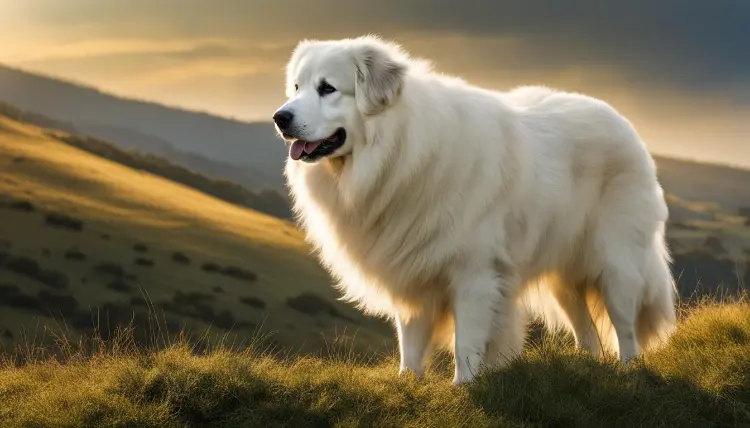
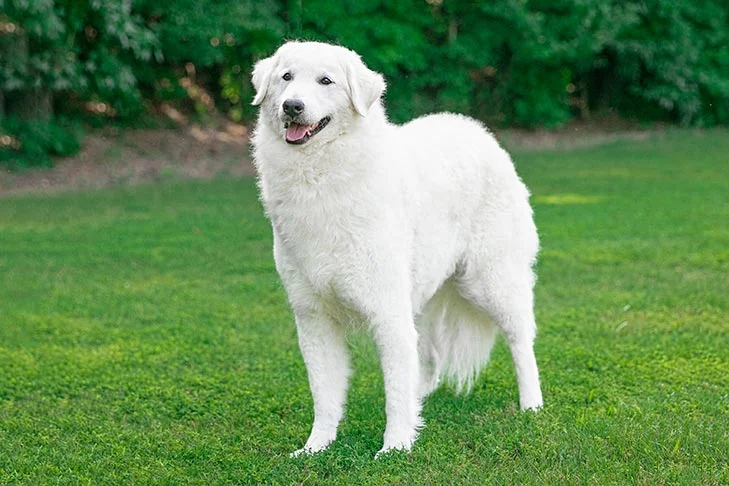
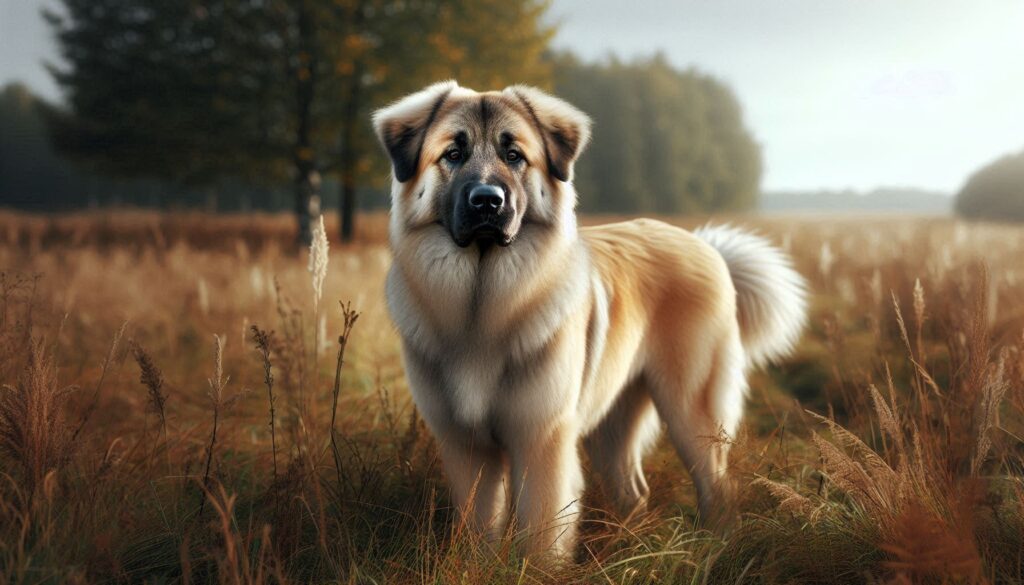
If you’re interested in the Maremma Sheepdog, you might also want to consider these similar breeds:
- Great Pyrenees: Like the Maremma Sheepdog, the Great Pyrenees is a large, white livestock guardian dog with a calm and protective nature. This breed is also known for its independence and strong guardian instincts.
- Kuvasz: The Kuvasz is another large, white guardian breed with a similar history of protecting livestock. This Hungarian breed is known for its courage, loyalty, and protective nature, making it an excellent companion for those with experience in handling independent dogs.
- Anatolian Shepherd Dog: Originating from Turkey, the Anatolian Shepherd Dog is a powerful and independent breed used to guard livestock. It shares many of the same characteristics as the Maremma Sheepdog, including a strong protective instinct and a calm demeanor.
Conclusion
The Maremma Sheepdog is a remarkable breed with a rich history and a strong sense of duty. Its loyal, protective nature makes it an excellent guardian and companion for those who can provide the space, care, and training this breed requires. If you’re looking for a dog that combines beauty, intelligence, and an unwavering dedication to its family, the Maremma Sheepdog might be the perfect fit for you.
If you’re interested in learning more about the Maremma Sheepdog or considering adding one to your family, take the time to research and connect with reputable breeders or rescue organizations. With the right care and training, a Maremma Sheepdog can be a loyal and loving member of your household for many years to come.
FAQs
Is the Maremma Sheepdog a dangerous dog?
The Maremma Sheepdog is not inherently dangerous, but it is a protective breed with a strong guarding instinct. This can sometimes be misinterpreted as aggression. Proper training and socialization are essential to ensure that the dog can distinguish between genuine threats and normal social interactions. With the right upbringing, Maremmas are gentle and loving with their families.
Is the Maremma Sheepdog the best guard dog to protect my family?
The Maremma Sheepdog is an excellent guard dog due to its natural instincts to protect and its loyalty to its family. However, whether it is the “best” guard dog depends on your specific needs and living situation. Maremmas are best suited for homes with large yards or rural properties where they can fulfill their role as guardians. They are particularly well-suited for protecting livestock and large properties, but they also provide effective protection for families in the right environment.
